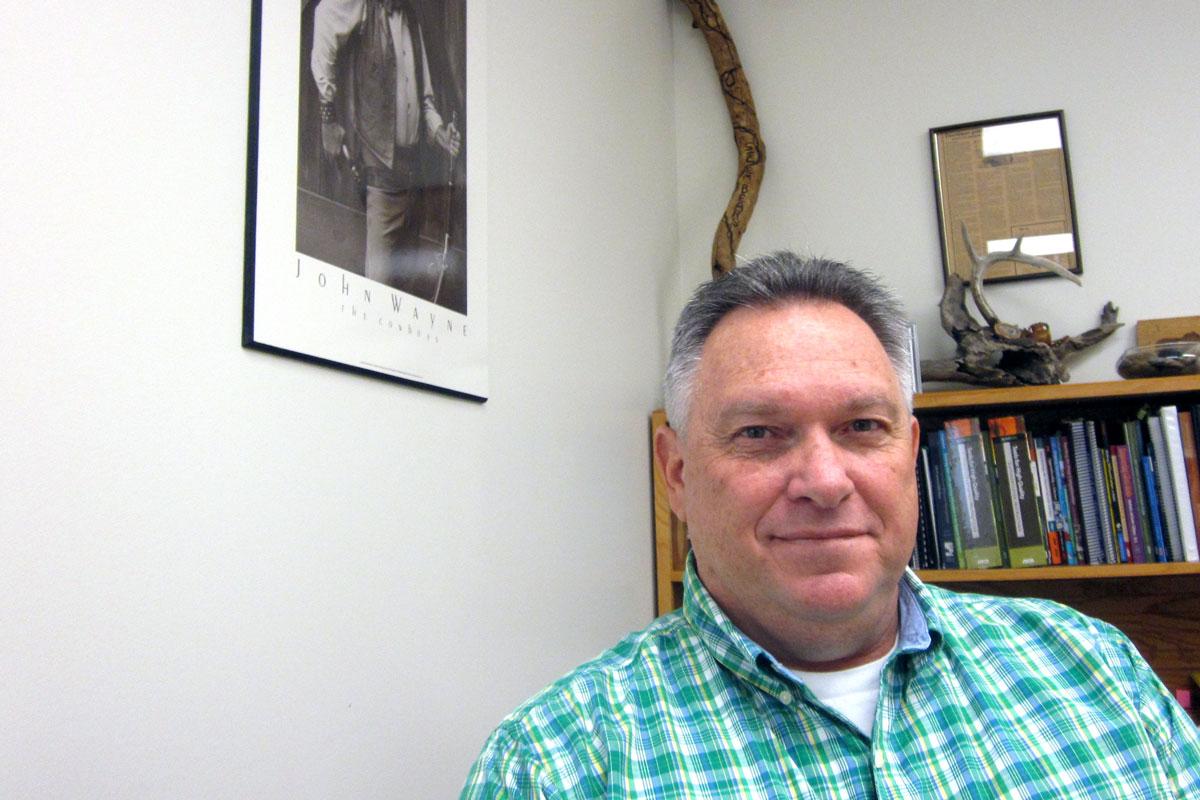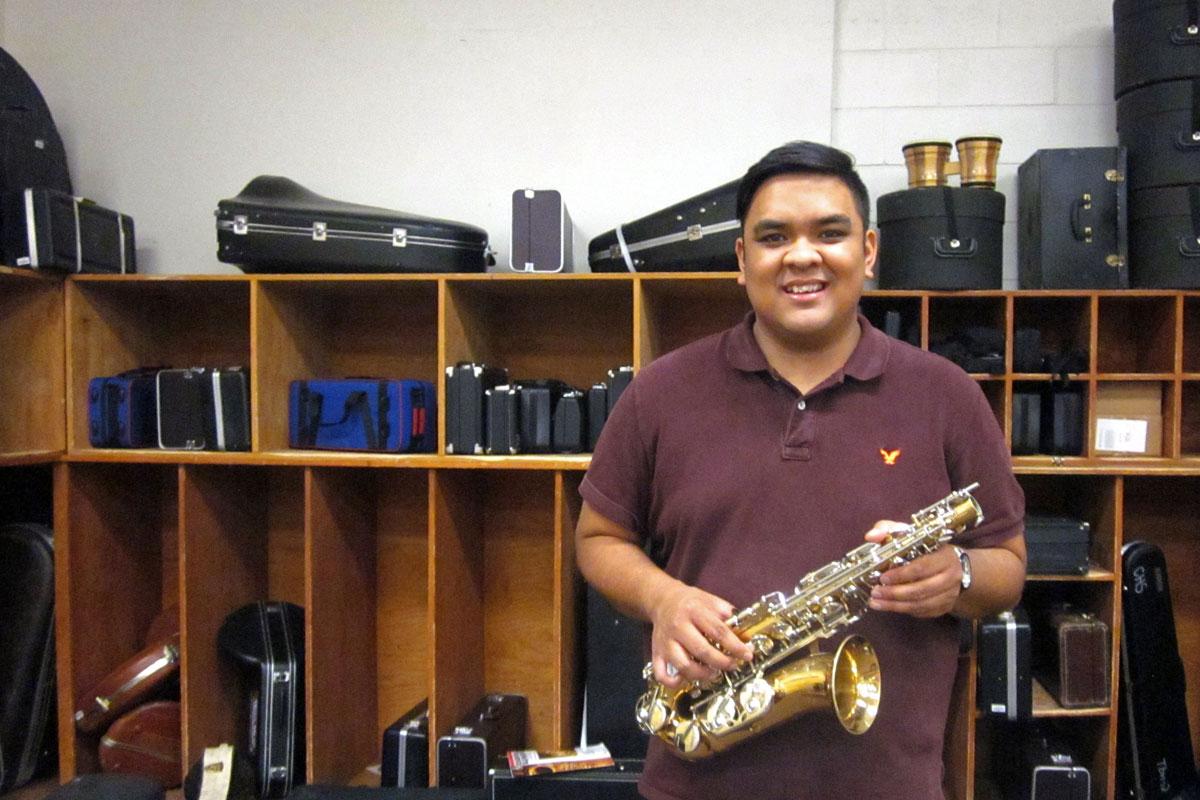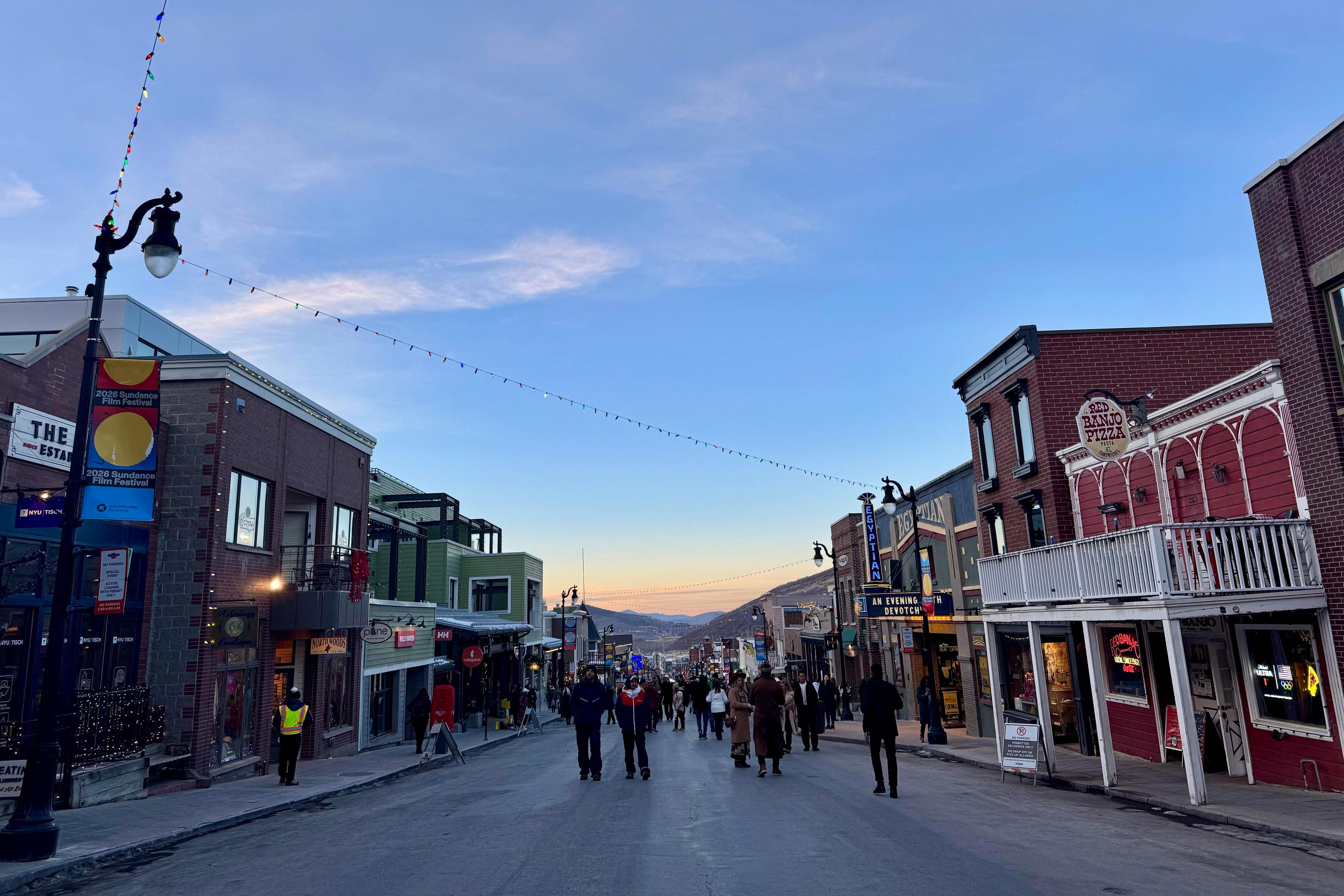
Caliche Junior-Senior High, in the RE-1 Valley School District, is smack in the middle of grain fields, 15 miles from the Colorado-Nebraska border. Google Maps shows it surrounded by irrigation circles. The nearest neighbor is a giant feedlot.
Principal Douglas Stutzman likes the freedom he has out here. He laughs a lot and enjoys the teachers and students. But when he gets going, Stutzman looks like the ‘no nonsense-looking’ John Wayne poster in his office. He’s kind of angry that his district has thousands of dollars less for each student than another district just a few miles away.
Colorado’s complex funding formula for schools hasn’t changed since 1994. Add on top of that the Taxpayer’s Bill of Rights, which limits growth in government revenues. When the economy is good, most of the surplus goes back to taxpayers instead of to public schools.

“Do you understand what that does?” Stutzman asks emphatically. “It screws it up forever! So we’re stuck! And what are we going to do about it? Well everybody’s going to try to do mill levy overrides.”
Mill levies are local property tax increases. RE-1 Valley and several other school districts will be making their request to voters on the November ballot. While necessary, Stutzman says they create a new set of funding gaps for schools.
“Pretty soon the communities that are willing to do that are going to have thriving schools,” he says. “And the communities that don’t are going to be drying up and falling apart.”
Many rural school districts in Colorado are still reeling from billions of dollars in funding cuts that started during the recession. The state promised to pay the money back, but has made good on only a little of the $5 billion cut since 2010.
The last time the RE-1 Valley school district passed a property tax increase was before the Great Recession in 2005 -- for $500,000. This time, they’re asking for 4 times that amount to make up for the $2 million in lost state funding.
Busted Saxophones
Falling apart is one way to describe the busted up instruments in Caliche’s music classroom. Ryan Rosete, the music teacher, holds up some saxophones and trumpets.
“These are kind of just missing valves, they don’t match… these just have holes in them,” he says.
The horns are rusting inside. Instruments are missing keys.
Hiring Rosete was a coup for Caliche. Arriving all the way from Hawaii, he’s an oboist with a master’s in concert performance who makes the drive into Metro Denver some days after school to play in a chamber ensemble. Rosete has grown the Caliche band from three high schoolers to almost 20. He’d love to build a full band or orchestra, but doesn’t have the instruments.
He’s not sure how long he’ll stay at Caliche.
“I have a hard time answering that because I’ve really bonded with students here,” he sighs.
It’s sad to know there are some pieces they can’t play because the music costs too much, Rosete says. He admits that fixing instruments with duct tape gets old. Rosete has been surprised about what students here don’t have compared to schools he has been in along the Front Range or where he’s from.
“I just assumed that it was like Maui,” he said. “The population of the school was small and that there would be no financial trouble. I know that’s Hawaii and this is Colorado - but at the same time I thought there would be no financial crisis because we’re a school and the government funds schools.”
But it’s the little things, like the fact that there is no money for an art teacher, “things these kids should be exposed to but they’re not, it’s kind of bothersome,” Rosete says.
Teacher Retention Is A Struggle
School funding is a tale so complex it’s often lost on voters. Out of the state’s 178 public school districts, 111 have asked voters for property tax increases in the past six years. Just over half were approved and many of those districts are often along the Front Range. Boulder Valley, for example, has replaced the state cuts plus some. Ballot measures are a tough sell in rural, conservative Colorado where anti-tax, anti-government sentiment runs as deep as the wheat fields are wide.
Even Principal Stutzman wonders how long he’ll be able to keep Ryan Rosete. Previously, Stutzman lost a music teacher to Wyoming. The teacher promptly got a $20,000 raise. Some of the money from this district’s ballot proposal would go to attract and retain teachers. Salaries start at $30,000, but because average wages are low here, officials say it can be hard to convince residents to raise teacher’s salaries.

“Parents even will say, you’re a teacher for the kids, the salary…[shouldn’t matter],” says math teacher Chris Roth.
He says he is in it for the kids, but when Roth looks at wages in neighboring states, “it makes you want to look around.” If he hadn’t been on the GI Bill, it would have taken him 18 years to pay off his master’s degree.
Principal Stutzman does all he can. For two of his last three hires, he even found them a place to live.
“Because I wanted them to be happy, I wanted them settled,” he says. “Boy, if I could find boyfriends and girlfriends for ‘em, I’d do that too!”
Stutzman rattles off the high cost of health insurance for teachers and rising transportation and energy costs. Then there’s what Stutzman calls the unfunded mandates. The school has several students who are severely disabled. One requires two staff members. The school must abide by federal disability law, but federal funding only covers about 15 percent of the costs. The rest comes from the cash-strapped district.
“So if we spend it on those services, we can’t spend it on bleachers, we can’t spend it on desks, we can’t spend it on teachers’ salaries, can’t spend it on anything else because it’s gone,” he says.
Time To Water The Baseball Field
The RE-1 Valley ballot measure could restore some of the electives like creative writing, exploratory science and history electives that have been cut. Or bring back the art teacher.
Then there’s the infrastructure. The building is about 40 years old, but there are problems.
Letting out a piercing whistle, principal Stutzman calls over some nearby students to help lay irrigation pipe over to the baseball field. There’s no money for underground sprinklers.
“Have you seen this anywhere on the planet?” Stutzman grumbles, motioning to the two laying pipe.

Watering the field is a multi-day process. The school has to order water from the reservoir two days in advance. School officials open up a head gate and the water flows down a ditch where, today, some cattle are drinking. Then, they need to bring in a pump.
The water treatment facility is old so the water in the drinking fountains is “kind of nasty,” Stutzman says. The sewer system sometimes shuts down, leaving Stutzman to order port-o-potties for placement out in front of the school.
After laying pipe, some of the students give their wish list for the school. Some would like a new football field. Right now it’s partially dirt and the lights don’t work too well. Others would like a home economics class. Others want more library books; they say they’ve exhausted the collection. One boy wants newer textbooks.
“New books would be nice, they’re all ripped up and there are people from the late ‘90’s who used those books that we can see in the entry log,” says Braydon East.
Next to the gravel track that surrounds the football field there’s raggedy, ancient wooden bleachers. Stutzman wants to take the bleachers to the dump.
“The only way that you can see the game is to stand on the top bleacher,” he says. “Is that safe to stand on that top bleacher?”
Sitting on the gravel track, senior Kayla Zink has something else on her mind.
“A [new] track is definitely on the list, that is definitely on the list,” she says.
It’s like running on a dirt road, Zink says. You can’t run in lanes, since there are none. Starting blocks don’t work on a gravel track. You can’t wear your racing shoes, “that would just annihilate your spikes,” she laughs.
This dirt track hasn’t slowed her down. Zink gushes about the tracks she’s raced on in Metro Denver, where she could finally hit her top speed. Last spring, she won the state 2A 100 meter championship.
Students Love The School
The irony is that there are a lot of things the school doesn’t have, but it does the best it can with what it has. It’s a good school on state rankings, with most test scores above state averages. The students know what the school does give them.

“You know the people and you get along with them easier and if you need them, they’re always there for you,” says Makeya Hernandez.
Another student, Ebony Lester, likes the student-teacher interaction, “you learn more and it actually sticks.”
Back in Ryan Rosete’s music class, the students listen to a Mozart opera as Rosete helps them understand the various parts. They’re hanging on his every word, eager to learn about the world beyond this small farming community.
If he had enough students, Rosete would one day like to have a school symphony. For now, he’s focusing on what he has, a fledgling high school jazz band. The drum set is falling apart and the bells don’t work. But Rosete says, the kids are what keep bringing him back.
“What’s crazy about it and one of the reasons I’m going to stick around here a little longer, is, regardless of how messed up everything is and no matter how much I try to fix up everything, they’re willing to still try,” he says.








